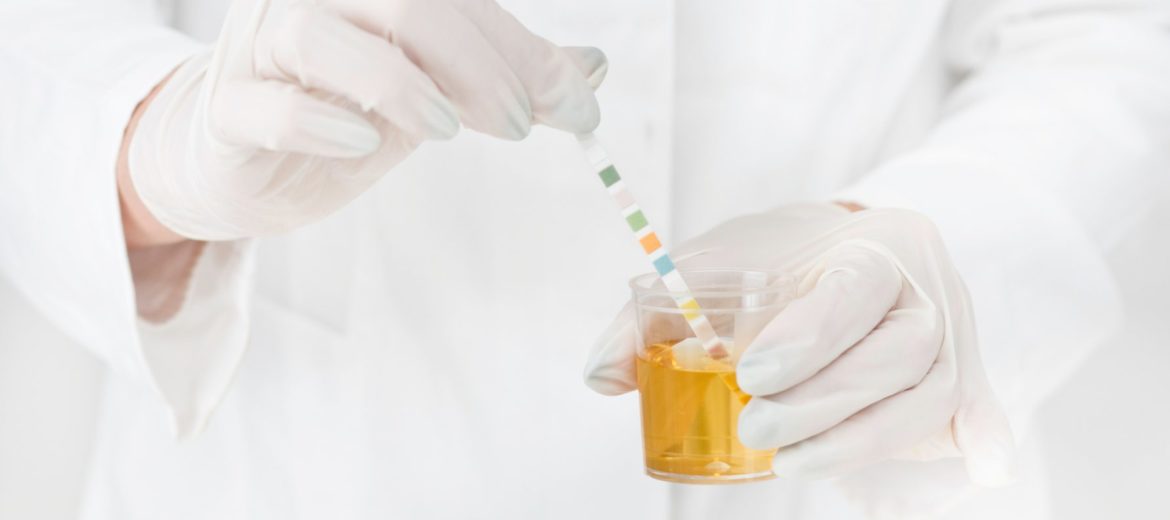Sudha Kalra, 35, got a routine urine test at 12 weeks of gestation.On receiving her report in the evening, she noted that urine ketones were positive. She was concerned regarding the presence of ketones in urine during pregnancy and took an appointment at the hospital.
“Ketones in urine during pregnancy, are often the result of fasting, particularly in the first trimester,” explains Dr. Anita Sabherwal Anand, Consultant Obstetrician-Gynecologist at Sitaram Bhartia Hospital in Delhi.
What causes ketones in urine during pregnancy?
“In normal circumstances, carbohydrates are broken down into glucose and then used as energy for the functioning of the body,” elaborates Dr. Anita.
“In the absence of sufficient carbohydrates or improper absorption of glucose, our body tends to break down fat as an alternative source of energy. This break down of fats results in waste by-products which are ketone bodies. These are then excreted by the kidneys into the urine. “
Ketones in urine during pregnancy are seen when the body fat is broken down and used up as energy. This is called ketosis.
This could happen in the following situations:
Excessive vomiting
“When you throw up constantly and are unable to eat to fulfill your nutritional requirements, your body doesn’t get the required carbohydrates and calories (glucose and energy) that it needs.”
“In order to get the requisite energy, your body uses up the stored fats resulting in the formation of ketones.”
Infection/Illness
If you’re suffering from an infection particularly with high grade fever or decrease in appetite, for example, in simple viral fever, or illnesses like dengue or typhoid, your body tends to consume all the carbohydrates and shifts to utilizing body fats leading to Ketosis.
Uncontrolled Diabetes
Ketones in urine during pregnancy may occur in mothers who have diabetes or develop gestational diabetes.
Dr. Anita says, “Our body normally produces a hormone called insulin to utilize the sugars from the food we eat. Hormones secreted by the placenta during pregnancy hinder the role of insulin and normally this does not affect glucose uptake.”
“In diabetes there is already a deficiency of insulin hormone which worsens due to changes from pregnancy and its hormones. Hence, in mothers with diabetes despite an adequate diet, the body is unable to use glucose efficiently for its energy requirements and it turns to using up stored fat as fuel.”
Ketones in urine during pregnancy are very common in mothers with diabetes particularly if they are not taking their insulin shots properly.
Since Sudha had no prior knowledge about it, she wanted to know whether ketones in pregnancy were normal.
She asked, “What exactly does it mean to have ketones in the urine?”
What does the presence of ketones in the urine indicate?
Simply put, it indicates the lack of carbohydrates in your system which most often results from fasting/starvation.
Occasionally, it could indicate ineffective utilization of sugars by the body just like in people with deficiency of insulin i.e. in diabetes.
“In mothers with diabetes, because the sugars are not used up efficiently by the body, high levels of blood sugar can cross the placenta and reach the baby. Since this amount of glucose is more than the baby requires, it will get stored as fat, resulting in a bigger baby.”
How do you check whether you have ketones in urine during pregnancy?
You can check the levels through a test done at the laboratory.
A routine urine examination is performed in each trimester in pregnant women, to rule out infections and look for protein and sugar in urine. It is during this test that ketones in urine are picked up.
Having understood some aspects about the condition, Sudha braced herself before asking about possible risks.
Does the presence of ketones in urine during pregnancy affect the mother and baby?
In most expecting mothers presence of small amounts of ketones in urine during pregnancy is easily managed and causes no harm.
However, in mothers with uncontrolled diabetes, ketone levels may increase and result in a complication called Diabetic Ketoacidosis in Pregnancy which requires immediate medical attention.
This condition could be life-threatening and may lead to brain injury in the baby and long term complications.
“But this occurs in very few cases,” gently reassured the doctor.
The doctor informed Sudha that the ketones in her urine were most likely due to her recent and frequent bouts of vomiting.
Sudha wanted to understand the next steps to treat the condition.
How to treat ketones in urine during pregnancy
Treatment for Ketones in urine during pregnancy due to nausea and vomiting (morning sickness)
When ketones occur because of vomiting, starving or fasting, changing your diet and eating properly helps settle the condition.
“You should keep yourself hydrated, even if you don’t feel like consuming fluids.”
“Your doctor may also advise medications for vomiting.”
In some cases, where the ketones in urine are in large quantities, you may need to be admitted and given fluids intravenously.
Treatment for Ketones in urine during pregnancy due to Illness/Infection
“Your doctor will prescribe medications for fever and if required antibiotics, depending on the cause of the infection.”
“You will have to increase your intake of fluids and carbohydrates so that your body can switch back to burning carbohydrates and using the resulting energy.”
“Regardless of the cause, you will have to return in a few weeks to evaluate whether hydration, dietary changes and medications have helped. “
The doctor informed Sudha that her condition wasn’t serious and in most cases the recommended treatment helps resolve the condition.
Sudha breathed a sigh of relief to know that the condition could be managed without harming her and her baby. She thanked the doctor for the information and scheduled her next appointment lest she forgot later.
Conclusion
Like Sudha, it is important that you too, get your tests done on time. If you are unable to visit the hospital, you should consult your doctor via video and arrange for home collection of any necessary tests.
“In case you have gestational diabetes, you must stay in touch with your endocrinologist and your diabetes educator so that they are aware of your progress and can advise any changes to your diet or medication in time,” completed Dr. Anita.
 Medically reviewed by Dr. Anita Sabherwal Anand
Medically reviewed by Dr. Anita Sabherwal Anand
MBBS, Lady Hardinge Medical College, University of Delhi (1992); MD (Obstetrics & Gynaecology), Lady Hardinge Medical College, University of Delhi (1997); DNB Secondary (Obstetrics & Gynaecology), National Board of Medical Education, New Delhi (1999)

